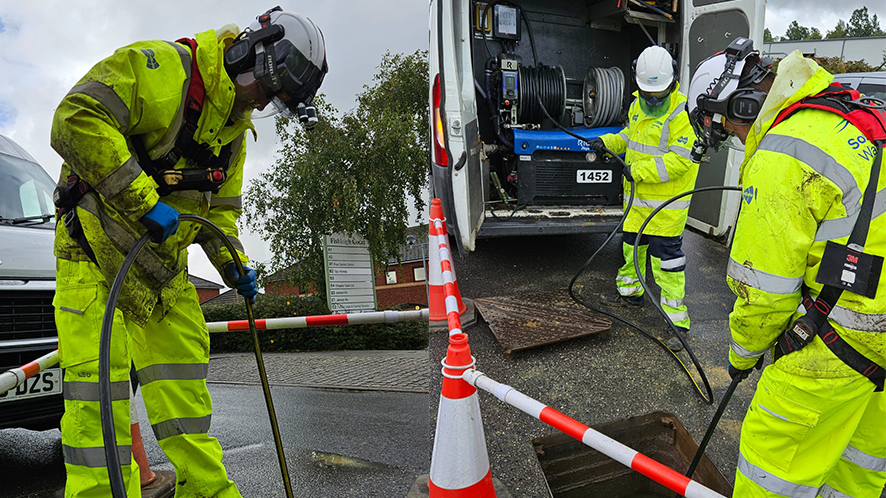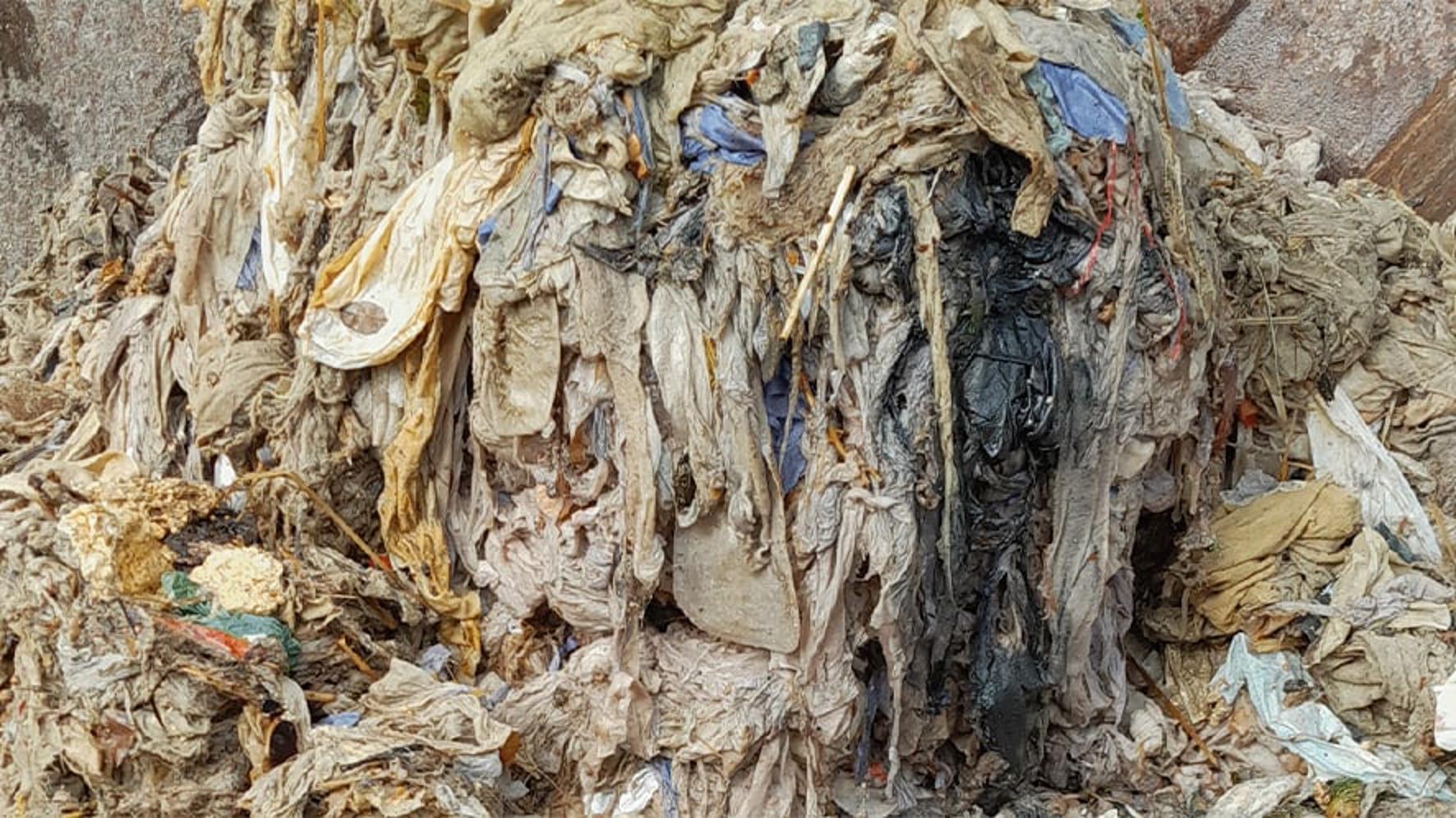Hidden beneath the streets of the South West, sewer monsters are forming every day – and South West Water needs help from customers to stop them from growing.
When fats, oils and greases (FOGs) mix with items like wet wipes, sanitary products, and food waste that are flushed down the loo or poured down drains, they create stubborn blockages.
If left unchecked, these can grow into giant, concrete-like fatbergs – the most extreme form of sewer monster.
These blockages can cause flooding, unpleasant odours, pollution in rivers and seas, and costly damage to the sewer network. That’s why South West Water is encouraging customers to ‘Bin It, Don’t Block It’ this Unblocktober and take simple steps to keep drains flowing freely.
Unblocktober is a month-long UK campaign encouraging people and businesses to prevent drain blockages and protect waterways by disposing of waste responsibly.
Understanding fatbergs and their impact
Many people flush wet wipes down the loo or pour leftover fats down their sinks without realising the impact they can have on the sewer network.
Wet wipes, even those labelled “flushable”, don’t break down like toilet paper.
When they mix with fats and oils, they clump together and form solid blockages which can, over time, grow into fatbergs.
The consequences can be serious – flooding in homes, gardens and streets, environmental pollution, and expensive repairs to the sewer system.

How South West Water tackles fatbergs
In the past year alone, South West Water has cleared over 7,000 avoidable blockages from its network, with three-quarters of those caused by just two things: wet wipes and fats.
As well as clearing blockages, the company works proactively to prevent them. Its teams use specialist monitoring technology to identify problem hotspots before they become an issue, and carry out targeted sewer cleansing to keep things flowing.
One of the ways the company is tackling these blockages is by working with its contract partners, ECAS (Environmental Compliance and Services), to engage with food service establishments and encourage them to dispose of their waste responsibly.
Philip Soden, Managing Director of ECAS, said:
“South West Water’s operational teams identify key areas in the region where blockages occur. Once located we then visit those hotspot locations and work with local commercial kitchens to help prevent future blockages.
“This could include introducing new grease-trapping equipment, identifying overlooked actions relating to misuse, and educating the kitchen teams on how to dispose of fat, oils and greases responsibly by introducing new and improved habits.”
ECAS has worked with over 2,000 food and service establishments since starting its partnership with South West Water, and 578 grease traps have been installed as a result to help reduce blockages.
How you can help
Blockages thrive on the things we put down our drains and toilets – but without a “food supply”, they can’t grow.
By making a few simple changes, everyone can help to starve fatbergs, keep our sewers flowing freely, and protect homes, communities and the environment.
Everyone can play their part by:
- Only flushing the 3Ps – pee, poo, and paper. Everything else belongs in the bin.
- Don’t pour fats, oils or grease down sinks. Let them cool, scrape or pour them into a container, and put them in your food waste bin.
- Food businesses should install and maintain grease-trapping equipment to stop FOGs from entering the sewer network and adopt good kitchen habits like dry-wiping dirty pots and plates into a bin before putting them in the dishwasher.
Jenny Eamer, Wastewater Services Operations Manager at South West Water, said:
“Blockages might sound like something out of a horror story, but they’re very real – and they start with the choices we all make at home and at work. The good news is that they’re easy to stop.
“By only flushing the 3Ps and keeping fats, oils and greases out of our drains, customers can protect their homes, keep our sewer network running smoothly, and safeguard the environment.
“Small actions starve these sewer monsters, and together we can make a big difference.”
Read more information about Bin It, Don’t Block It.
